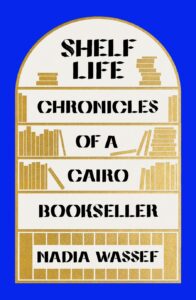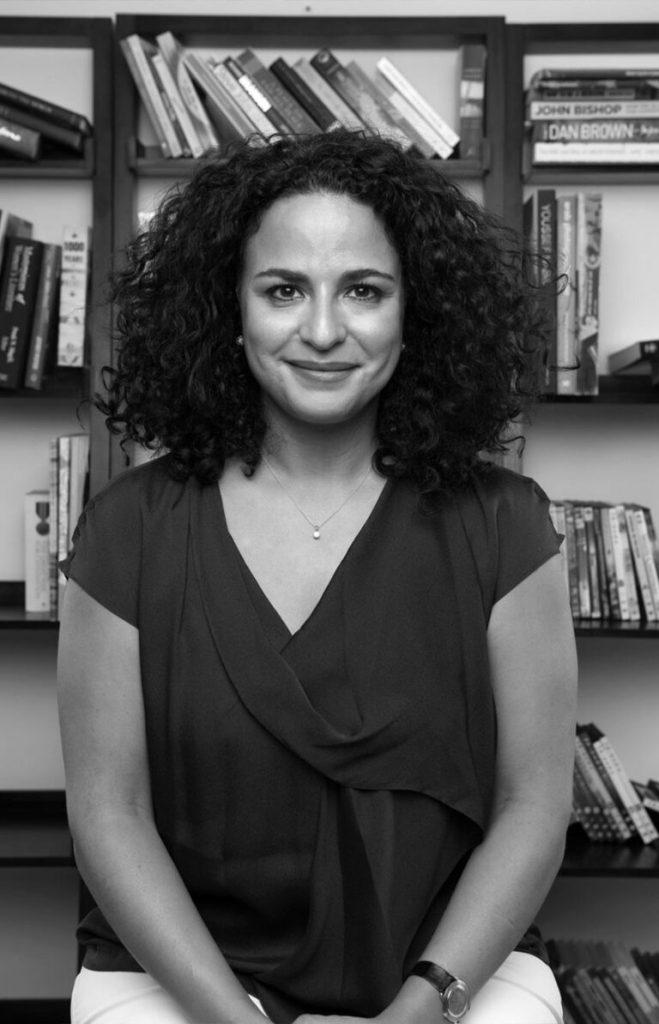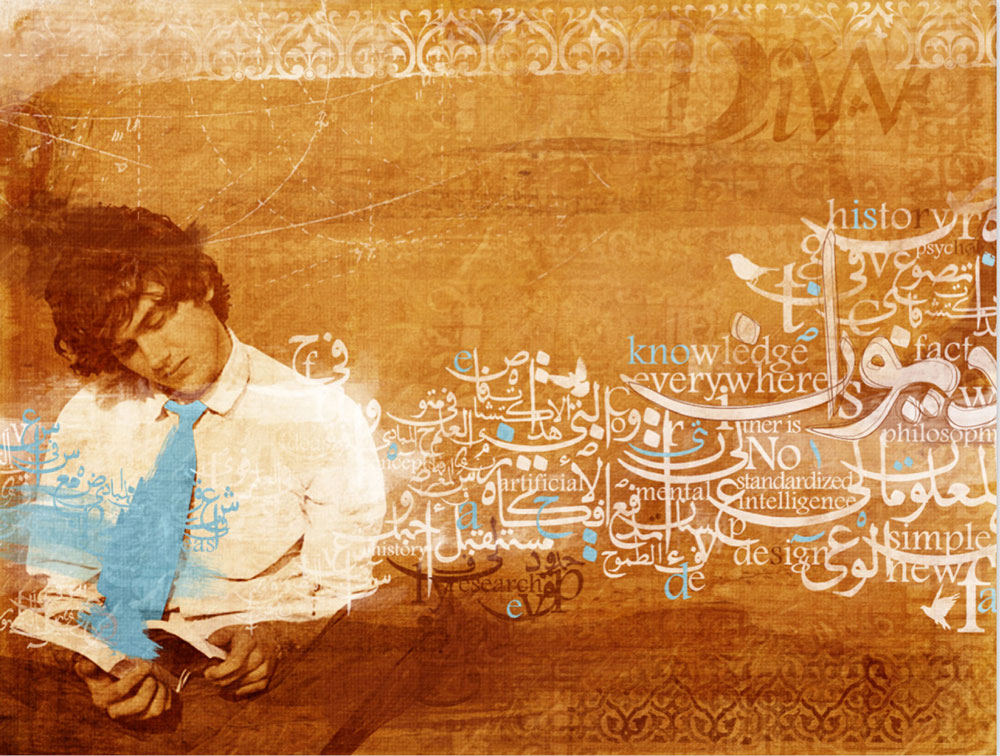Shelf Life, Chronicles of a Cairo Bookseller
An autobiography by Nadia Wassef MacMillan/FSG (2021)
ISBN 9780374600181
 In a world where bricks and mortar bookstores are a dying breed, the story of Diwan’s twenty years of success in Cairo feels like that of David beating Goliath. In her confessional memoir Shelf Life, Nadia Wassef chronicles her journey from naïve but ambitious young woman to owner of Egypt’s most successful independent bookstore chain. Wassef’s raw honesty, her candid sense of humor and her love of books pull the reader in, as she interweaves stories from her personal life with the story of Diwan where we find ourselves attached both to the protagonist and to the people who surround her.
In a world where bricks and mortar bookstores are a dying breed, the story of Diwan’s twenty years of success in Cairo feels like that of David beating Goliath. In her confessional memoir Shelf Life, Nadia Wassef chronicles her journey from naïve but ambitious young woman to owner of Egypt’s most successful independent bookstore chain. Wassef’s raw honesty, her candid sense of humor and her love of books pull the reader in, as she interweaves stories from her personal life with the story of Diwan where we find ourselves attached both to the protagonist and to the people who surround her.
The name ‘Diwan’ was coined by Wassef’s mother to reflect all the meanings of the word, “a collection of poetry in Persian and Arabic, a meeting place, a guesthouse, a sofa, and a title for high-ranking officials.” The bookstore was born on the 8th of March 2002, the brainchild of Nadia, her sister Hind, and their friend Nihal. The three women complemented each other in their management styles. “Hind, a woman of few words, was hard but fair. Crossing her was like being caught between a sword and a knife. (…) Nihal’s subdued presence guaranteed she got her way, somehow ensuring that everyone was left satisfied.” Nadia, on the other hand, describes herself as ruthless: “If Diwan’s success had been dependent on my ability to win friends and influence others, we would have failed miserably. To be clear, I was a bitch to work with. I know, I know, it’s a bad word. But I reclaim it with pride. I am a difficult person. (…) and it’s gotten worse with age — an impatient, exacting, and dictatorial leader. I was tactical, exerting pressure on those who worked with me and driving them to do better. I apologized for none of it, since whatever I asked of others, I demanded of myself first.”
For many Cairenes, Diwan soon felt like home, a sanctuary for people who still enjoyed a day without conversation and only pages to flip for company. When the partners started out, there were many naysayers. They insisted Egypt was in a state of cultural atrophy, where bookstores could never thrive. Yet Nadia’s vision for Diwan as “a bookstore where people will not only spend money, but time” is the one that materialized.
Nadia’s sister Hind specialized in Arabic book buying, because of her love of Arabic literature, unlike Nadia whose relationship to Arabic was distant, “[c]omplicated and inaccessible, classical Arabic left us linguistically orphaned; English adopted us, and we accepted all too gladly.” Many of Diwan’s readers shared Nadia’s feelings and were “similarly dislocated from their roots and lost in linguistic migration. We didn’t want to punish them; we wanted to invite them in.”
Diwan became a family affair. “Most staff members had a blood relative somewhere in the company. Samir, Nadia’s driver for fifteen years, his cousin worked as a security guard in the Heliopolis branch; and Abbas, Hind’s driver, had four cousins scattered among the two stores, the company office, and the warehouse.”
The class divide between the staff and the owners also illuminated the social and economic disparity in Egypt. “We came from, and inhabited, two different Egypts. They were rural boys who had migrated to the city looking for work; I was a city girl, born and bred in Cairo. They were predominantly Muslim; my family was one of mixed faiths. They graduated from government schools; I enjoyed the benefits of a private education, paid for in foreign currency, and had two master’s degrees. My brazen confidence unsettled them.” Hind however, handled things differently. “Despite her reserve, Hind’s humility and politeness were endearing; she stood up to shake hands with customers and staff. She always introduced herself as Hind, eschewing any title, which, in a classist society, completely defied convention.” Nihal was more of a gentle mother figure whom staff members were eager to please.
Throughout the book we learn about Wassef’s parents, her father who passed away but left her a legacy of hard work, resilience, and negotiation skills; her mother whom she constantly rebelled against but whose approval she yearned for; and her sister, the business partner and companion who was always by her side.
Labels were one of Nadia’s biggest struggles, for she never saw herself reflected in the words entrepreneur, mother, divorcée, pioneer, daughter. The self-help books that Diwan carried only increased her turmoil. Self-help “felt like a capitalist perversion of the basic experience of human life. I watched as the banality of parenthood transformed into a spectacle that justified the purchase of specific clothes, gadgets, and now, books.”
Her experience of marriage, pregnancy and motherhood only exacerbated her aversion to the genre: “Times like these made me resent the images of maternal bliss I saw on the covers of pregnancy books. Where were the faces ridden with malaise and alienation? Where was the discomfort and dissatisfaction of breastfeeding? Why did nobody warn me about the additional guilt of harboring these feelings at all? (…) Parenting continually brought my weaknesses and limitations into stark relief. Part of my distaste was due to the expectation that childbearing would be the ultimate fulfillment of my womanhood, my crowning achievement. (…) Bearing children signified success— never mind how they turned out.”
She continued to resent “the self-help genre that was created to assuage, and conceal, the deep-seated alienation of being alive under capitalism, under patriarchy, under all other broken systems. That individual self-improvement is a misguided antidote to our increasing isolation from nature, family, and community.” Yet by the end of the book Nadia admits that “the writing of this book has been an exorcism of sorts.”
The father of her daughters agreed. “[A]fter reading this memoir, he told me that I’d written my very own self-help book.”
When Diwan was six years old, Nadia’s daughters were four and six, and she describes how she battled as a single working mother, “As a woman, how do you reconcile the demands of home and work? (…) I never will. I wouldn’t trust anyone who claims to have done so. (…) But I made my choices. I want my girls to grow up in a home where their mother works. I am a single parent, and I am proud and grateful.” Her no-frills parenthood and straightforward attitude still make her unsure of herself as a role model for her daughters, especially after her second divorce. “After two pregnancies, I got my tubes tied. After two divorces, I made the vow: never again.”
Mubarak ran our lives, and our homeland, under the guidance of a tried and tested Egyptian proverb: strike at the shackled and the free shall be deterred.
The funny intriguing anecdotes of Nadia’s favorite books were like going through everything we’ve read in the past twenty years. Her preferred choices many times were in line with my own, like Waguih Ghazi’s Beer in the Snooker Club on how he blurred borders, followed his “desire to belong and a fear of leaving oneself behind,” and Chimamanda Ngozi Adichie on “the danger of a single story.” She expressed frustration with what was globally popular — books by Paulo Coelho, titles such as Eat Pray Love and Chicken Soup for the Soul. However, she was appreciative of the importance of variety: “We were cubists, offering varied perspectives and angles from which to view the same subject. (….) No two readers will ever read the same book in the same way.”
Diwan was where Nadia found relief and escapism. She writes: “The only thing that made me feel like myself during those years was stacking books, arranging them on our shelves with care. I would forget my children, my failing marriage, the leak in the bathroom ceiling, the ironing I had to send to Akram. I would surrender to a kind of transcendence that felt like drifting, surrounded by the abundant shelves, the ample conversation, the snippets of laughter. I belonged in Diwan, in a way that I didn’t in my own home with my daughters.”
Egypt Essentials
Diwan’s story is also a story of the history of publishing and bookstores in Egypt. Nadia’s book choices forced her to confront the realities of Egypt’s colonialism, neo-colonialism, politics, and socio-economic life. The “Egypt Essentials” section of the bookstore enabled readers to get “a glimpse of Egypt’s soul — a promise of reclamation and redemption — may be accessible only through someone else’s words. Egypt Essentials was a small section that posed a series of questions without claiming to answer them … Our eclectic collection introduced the colonizer to the colonized, the historians to the novelists, the locals to the outsiders.”
Shelf Life expands on the power of the shelf and how it can contribute to cultural awareness. The Mubarak regime’s philosophy ran counter to this belief, seeking to propagate only what it sanctioned through its heavy-handed censorship bureau. “As law-abiding citizens, we knew that it was illegal to say, write, or print anything that offended public morals, threatened national unity or the social order, or tarnished Egypt’s reputation in the foreign press,” Wassef writes. “Violating these rules could result in imprisonment, payment of fines, or the suspension of licenses. Mubarak ran our lives, and our homeland, under the guidance of a tried and tested Egyptian proverb: strike at the shackled and the free shall be deterred.”
The Arabian Nights, a regular on Diwan’s classics shelf, was Nadia’s favorite book of Arabic literature, and she searched for the original uncensored 1001 Nights at the used book market in El-Ezbekiya. Her own brush with the censorship bureau was for The Naked Chef, which the bureau thought a breach of public morals because of the title. With time, Nadia became seasoned and knew how bringing the censorship employees sweets during festivals could ease the process. Yet, “the pervasive uncertainty and endless delays are tools for control. You watch from a distance, knowing that one day, your turn will come. Until then, you surrender to panoptic self-censorship, measuring your words.”

Her attitude towards religion was equally progressive. She refused to carry books by Islamic polemics that all other stores carried. Instead, she chose to highlight Coptic history and culture, and celebrated with Islamic cultural books. “When we did Islam, we did it Diwan-style. We did not stock texts about hadith, sayings of the Prophet, or the different schools of Islamic jurisprudence that besieged existing bookstores. Instead, we sold books about mulids, festivals celebrating the births of saints, Sufism, poetry, calligraphy, architecture, and the artistry of woodwork, carpets, and pottery. We challenged ourselves and others to read history as a changing entity, rather than a lifeless, linear record. We presented and lobbied for a study in fragments of a history in fragments.”
As time went by, Nadia’s upbringing and parents made her feel like Cairo was excluding her. “But in recent decades, acceptance of otherness and tolerance of religious difference seem to have faded.” Her children lived a life far more removed from Cairo’s different social classes than Nadia and Hind had. “I thought about the relationship the youngest generation, growing up in gated communities and compounds, would have to their surroundings. I can’t imagine cultivating a sense of civic duty and belonging from behind such high walls.”
Nadia’s daily challenges with society and Diwan grew. She had to deal with cases of theft and sexual harassment in the store. Then the 2008 recession hit hard and just as Diwan started recuperating its losses, the Egyptian thawra happened in January 2011. Nadia writes:
“Frustration at every unfulfilled promise made over the previous five decades was palpable. During the early days, before we could call it a revolution, there was a series of escalating protests that police responded to with rubber bullets and tear gas. (…) We tried to keep staff morale and physical stores intact. For our remaining seven stores and 108 staff members, the protests, curfews, and blocked roads added to the uncertainty. Every day, we lost revenue. Stores couldn’t open. People were buying food, not books. Aware of our social responsibilities, and regardless of cash flow and battered balance sheets, we continued to pay full salaries while many other businesses deferred or withheld payment.” Then, for a brief period of exhilaration “our customers were reading more than ever. While sales of my English books fell—buying them seemed almost unpatriotic—Hind’s Arabic sales mushroomed.”
The turnaround was short lived. “Around 2014, buying patterns shifted as collective fatigue set in, eventually giving way to disillusionment. There was a notable increase in demand for spiritual titles. I felt the pain of our disappointment. Books, especially books about transcendence, were antidotes to burnout. We’d been watching the news too much in the fevered years following the revolution. There was a sense of impending failure. The Arab Spring had unspooled into the endless winter of our discontent.”
Diwan became a household name thanks to Nadia’s sheer force, stamina, and her relentless drive. Her identity was intertwined with that of the store, she was known as Mrs. Diwan during those fifteen years. “Diwan was my love letter to Egypt. It was part of, and fueled, my search for myself, my Cairo, my country. And this book is my love letter to Diwan.”
That’s why when Nadia “left Cairo, feeling broken and beaten, I kept returning to the days when Diwan was simpler. When Hind, Nihal, and I were all positive forces in each other’s lives, when I wasn’t crippled by guilt for abandoning everyone and everything I held dear. I felt like a fraud whenever anyone congratulated me on what we’d built. (…) I had to choose between Diwan’s future and my children’s, and I chose the latter. (…) When I left Egypt, Egypt also left me. In London, I tried to find a job in bookselling, only to discover that a Cairo bookseller was an exotic proposition as long as she stayed in Cairo and ordered English books for the natives to read. Her experience didn’t translate. The English market was apparently much more sophisticated. I thought readers were readers everywhere. I was gutted, and I was furious.”
Nadia is undoubtedly a force to be reckoned with, whether negotiating with suppliers, facing the censorship bureau, or stacking the shelves at Diwan, but she recognizes that it is not only her tireless efforts that have shaped her, it is also her privilege. “I am no trailblazing heroine, and I’m no better than the millions of women who stayed in shit marriages. I could afford to divorce. It was that simple. I had a roof over my head, and I was financially independent.” In consequence she’s hard on herself, self-deprecating, never letting herself off the hook and admitting willingly to her faults.
Zamalek where Nadia grew up and where the Diwan flagship store was born, “is on an island in the middle of a river surrounded by a desert; England is also on an island, one with shit weather. On this island, I feel like neither an immigrant nor part of a diaspora. When I was sixteen, I read Camus’s The Outsider. I saw myself in the title. Today, the knowledge that I don’t belong anywhere liberates me. The books on Diwan’s shelves stayed in place and moved, were bought and left behind. I see myself in them.”
Post was originally published in The Markaz Review



